Affordable Plumbing Engineers for Water Heaters
Seattle Water Heaters
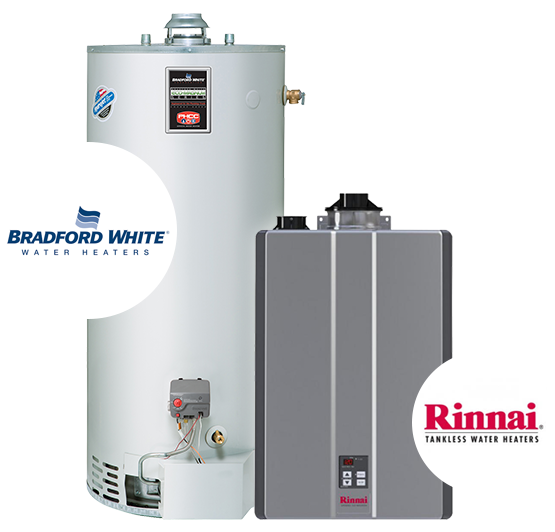
How Many Years Does a Water Heater Last?
Home plumbing is incomplete without a water heater, but like all equipment, it has a finite lifespan. You had better be prepared for when your water heater breaks down (and it will). If not, you’ll have to cope with cold water when you’d rather have a hot shower or even worse, you might have to deal with water damage to your house.
A water heater has an eight-to-fifteen-year lifespan on average. Though the type of water heater, its quality, and how well it is maintained will all affect how long it actually lasts. While some water heaters may only last a few years, others may last for more than 2 decades. It’s crucial to have your water heater frequently serviced and checked for potential issues if you want it to last as long as possible. In order to prevent your water heater from having to work harder than necessary, you should also make sure that your home’s plumbing is in good shape. You can contribute to your water heater lasting longer by implementing these safety measures.
How Long Does a Tankless Water Heater Last?
It’s not always clear how long a tankless water heater will last. Depending on things like the sort of heat exchanger you have in your system, its longevity can vary.
With regular maintenance, a tankless water heater can typically last up to 20 years. Your tankless water heater has a 12- to 15-year warranty if it features a copper tankless heat exchanger. However, a tankless water heater with a copper heat exchanger may normally survive between 12 and 20 years with proper water treatment and annual maintenance.
Your tankless water heater will last even longer if it has a stainless-steel heat exchanger. A tankless water heater with a stainless-steel heat exchanger often comes with a 15- to 25-year warranty. Again, regular maintenance and water treatment can extend the tankless water heater’s lifespan to 25 to 30 years.
How Long Does a Tank Water Heater Last?
The conventional tank-type water heater lasts 8 to 12 years on average. By electrolyzing all corrosive particles to itself inside the tank, an anode rod shields the internal lining of the tank from damage. These particles fall at the bottom of the water tank where they may eventually ruin the liner after the rod has rusted to the point that it can no longer perform its function. The water heater has reached the end of its useful life when corrosion starts to occur inside the tank.
Factors That Affect The lifespan of Your Water Heater
Many homeowners depend on their water heaters to provide hot water for everything from taking a shower to washing dishes. While the average water heater lasts for about ten years, there are a number of variables that can affect how long yours will last. Here are some things to remember:
-
Type
We cannot compare all hot water systems using the same standards. A water heater’s estimated lifespan will vary depending on its fuel source—gas, electricity, solar, etc. Electric-powered water heaters are expected to last longer than gas-powered water heaters.
Also, tank-storage water heater systems are likely to have a shorter lifespan since the stored water corrodes the tank over time. On the other hand, because it uses a relatively simple mechanism and doesn’t store any water over time, a tankless water system is likely to last much longer.
-
Water heater quality
A cheap water heater won’t survive very long. You get what you pay for with most household systems, but a trustworthy heating professional can offer advice on which water heater to buy. The warranty coverage is an additional criterion. Typically, models with better manufacturing quality come with longer warranties.
-
Installation quality
It’s crucial to have a good installation. Matter of fact, if the water heater is not installed properly, no matter how well-built it is, issues will probably arise quickly. The location of the water heater in your house should be determined with the help of a qualified heating professional. In addition to just installing the heater in your basement because you want it there, other factors including ventilation, accessibility, and insulation are taken into account, as well as compliance with building codes.
-
Water quality
The lifespan of the water heater will most certainly be reduced by around two years if it heats hard water more frequently. Minerals in hard water can cause limescale to form in your water heater, lowering its performance. Before the minerals get to appliances like your water heater, water softeners can remove them.
-
Maintenance (or lack thereof)
Your water heater can stop working after a few years if you neglect to perform repairs and maintenances on a regular basis. Water heaters can even survive longer than anticipated when they are properly maintained. You can get in touch with us if you require plumbing services in Seattle for water heater maintenance and repairs.
-
Usage
The way it is used has a big impact on how long a water heater lasts. The workload on the water heater is increased by large amounts of water, and if it is always under such stress, a breakdown may happen sooner rather than later. It is crucial to have the right size; you will need a larger capacity water heater if you have built extra rooms or an upper storey. Using the previous one, which catered to a smaller house, might not be enough and may cause your water heater to break down due to the overload.
-
The pressure-relief valve
The conventional water heaters have a pressure relief valve. These valves stop the heaters from exploding as a result of an internal water heater pressure build-up. If the pressure-relief valve is working perfectly, your water heater will last longer for sure.
-
Your water temperature
Your water heater’s lifespan will be shortened the hotter the water is. Your water heater will also work harder and use up more energy if you live in a cold climate than it would in a warmer one.
-
The anode rod
The anode rod, the most important component of your conventional water heater, gets rusted easily as it attracts minerals and impurities to itself. The condition of your anode rod could affect the lifespan of your water heater.
-
Your water heater’s size
Because of its greater capacity and ability to withstand more wear and tear, a larger water heater will survive longer than a smaller one.
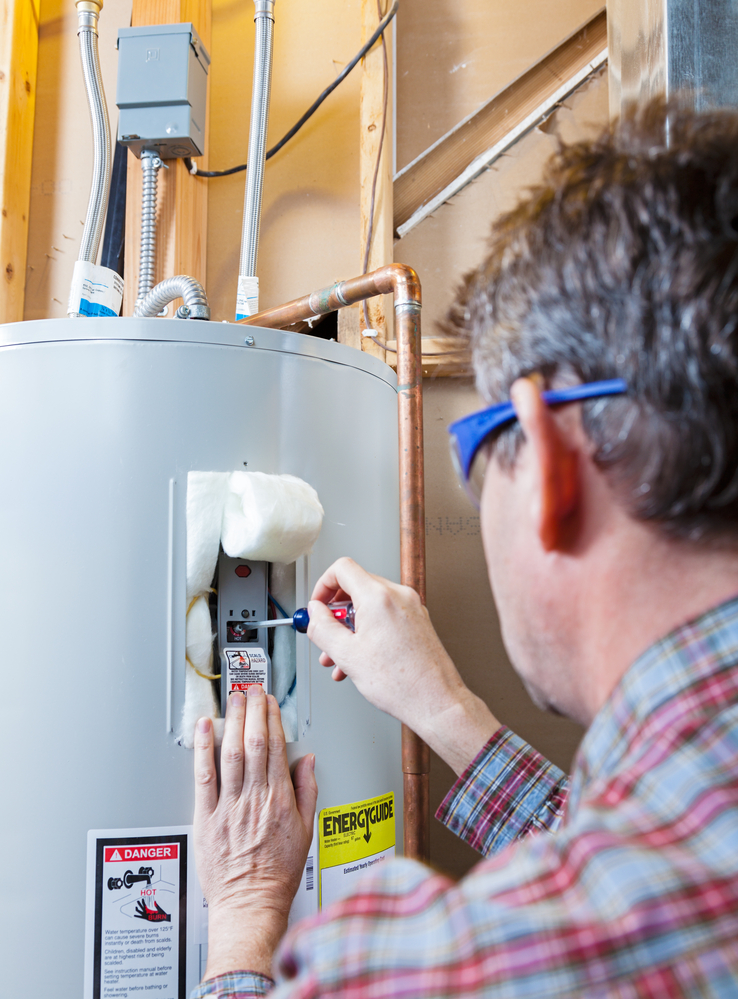
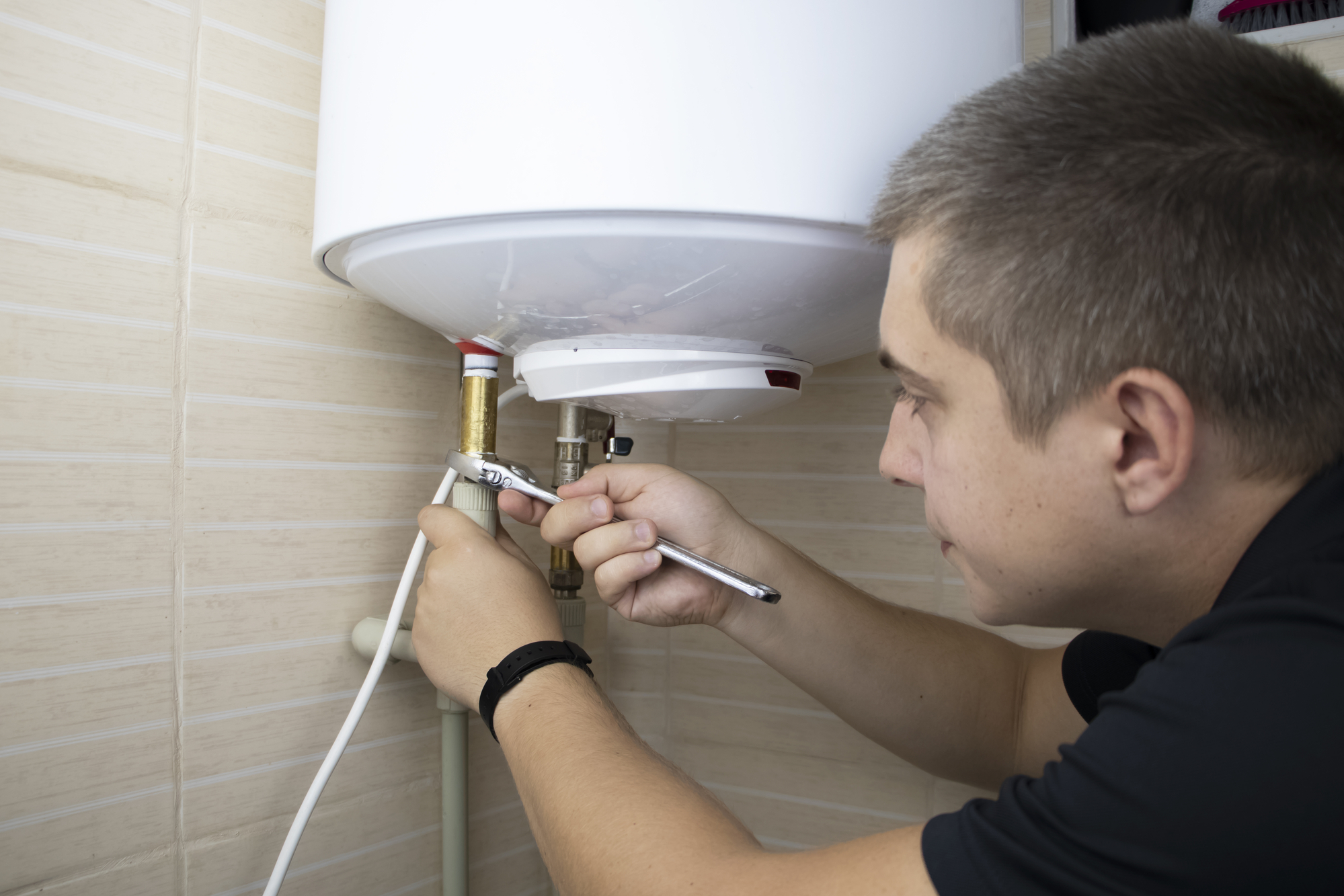
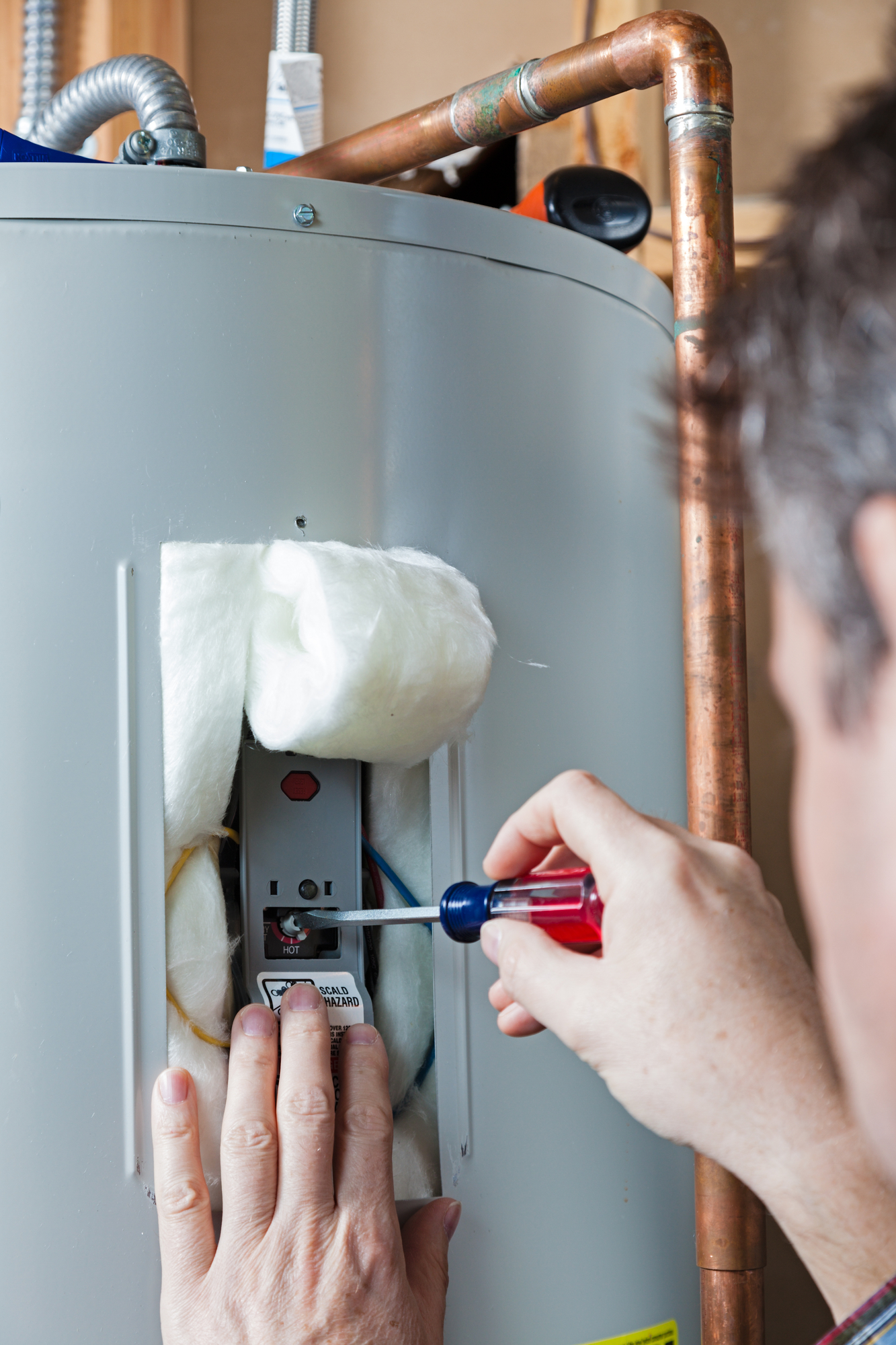


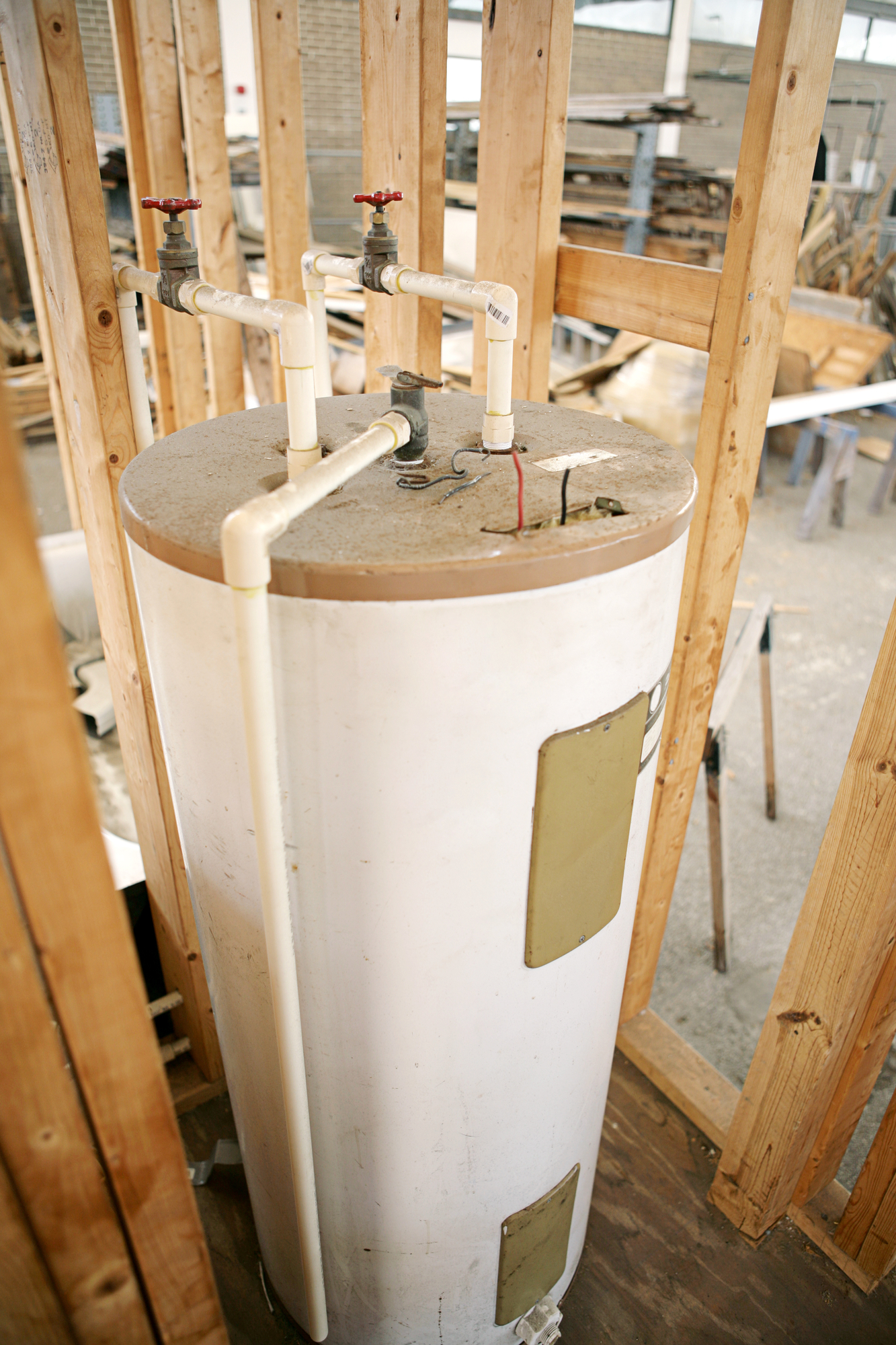



How to Extend the Life of Water Heaters
Every home needs a water heater, and in order for them to work well and last as long as possible, they must be properly maintained. Here are some suggestions for extending the lifespan of your water heater:
-
Do routine maintenance
Regular maintenance checks are the best strategy to extend the life of your water heater. You’ll be able to identify what needs to be serviced or replaced before it completely breaks or causes irreparable damage to your appliance. During your inspections, be sure to:
Clean up the area surrounding the water heater
Learn how to switch off the water
Keep written notes of important information, such as the type of water heater you use, its location in your house, its model number, and its serial number.
-
Regularly flush your tanks
The accumulation of sediment at the bottom of your tank can lead to internal corrosion and have an impact on the functionality of your water heater. These sediments are frequently brought on by natural mineral deposits or particles in your water supply.
Flushing your water heater once a year will keep it operating at its peak efficiency. It’s easy to do this; all you have to do is empty your tank of about three gallons of water to get rid of the build-up. Draining requires caution because the water may be very hot.
If you reside in a region with hard water, mineral deposits will be more frequent so you might want to flush your system more frequently than once a year.
-
Inspect the anode rod
The long metal rod known as the anode rod serves to prevent rust on the water heater tank. It draws corrosion, preventing rust on the inside of your heater. After years of combating rust, that rod will eventually erode and leave your appliance prone to corrosion.
Your water heater’s lifespan could be doubled thanks to this tiny rod. You should examine it every year just in case (even if it might last five to ten years), and replace it when necessary. How frequently it will require replacing will depend on things like how much water you consume and how hard your water is.
Turn off the water, power, and/or gas to the heater before inspecting the anode rod. Then pour a portion of the water—not all of it—into a bucket. Find the anode rod, which is typically located underneath the water heater’s lid or on the unit’s top near the hex head, and inspect it. It needs to be replaced if more than 50% of it is corroded or covered in calcium. The good news is that a replacement rod often only costs $20 to $50 and a professional may be hired for this reasonably short procedure for between $50 and $150 per hour.
-
Install a water softener
Installing a water softener could lengthen the life of your water heater if you reside in an area where the water systems have significant mineral content. The term “hard water” refers to water that contains a high concentration of minerals. The lifespan of water heaters is shortened by hard water. The reason for this is that the mineral content leaves deposits in the water heater, which makes problems appear much sooner than they should. Installing a water softener reduces the possibility of mineral build-up in your system.
-
Check the pressure-relief valve
On the top or side of the water heater, there is a safety valve called the pressure relief valve. If the pressure inside your water heater rises too high, it is designed to automatically open and discharge the water. Your water heater can blow up in the worst-case event of a valve failure.
For the longest possible heater life, test your pressure valve frequently. Do this by placing a bucket beneath the T&P (Temperature and Pressure) valve, pulling the lever, and releasing a few liters of water. When you close the valve, the water should completely stop flowing. If not, it needs to be replaced.
-
Add an expansion tank
The longevity of your water heater can be significantly increased by adding an expansion tank. This is especially valid for closed-system water heaters. Backflow into the water main is not possible with these closed systems. As a result, when the water expands, it has nowhere to go. Your water heater endures a lot of stress as a result of the frequent pressure changes, which finally causes it to break. The system will be under less strain as a result of the expansion tank because the water now has a way out.
-
Insulate the heater and pipes
Although insulating your pipes won’t directly increase the lifespan of your water heater, it will become more energy-efficient. Who wouldn’t want a more efficient and cost-saving appliance, right? A more efficient system also means your water heater will serve you well for longer.
Your system may be having trouble heating your water if you’ve seen a rise in your utility cost. Your water heater’s temperature can be raised by two to four degrees and become more energy-efficient by insulating your pipes. During the colder months, it can help prevent your cold-water pipes from freezing and possibly bursting.
What Signs Indicate That a Water Heater Needs to be Replaced?
If your water heater is older than ten years, you might want to look into replacing it. Your water heater can be maintained in a few different ways, but ultimately it will need to be replaced. The following warning signs indicate that your water heater is nearing its end-life:
Supplying lukewarm or cold water
Nobody enjoys getting an unexpected shock of ice cold in the middle of a relaxing hot shower. Hot water heaters lose efficiency with age and become less effective at heating water because of sediment build-up.
If your heater is still quite new, the problem may be a broken heating element. You can call a skilled plumber to replace the element instead of purchasing a completely new heater.
The water heater may occasionally be in perfect working order yet be inadequate for the demands of the household. Has the quantity of persons using the water increased, or has consumption increased? If so, it could be time to swap out your current water heater with a larger one.
Rumbling sounds
As your water heater gets older, you could notice that it makes some odd noises while heating the water. When you consistently use a lot of hot water in your home, the banging sound might even get louder.
The accumulation of silt at the tank’s bottom is the main cause of this issue. If you don’t have a water softener and reside in an area with hard-water supply, this is particularly typical.
To prevent sediment building at the bottom of the tank, the majority of manufacturers advise flushing the water heater once a year.
It’s an old water heater
A typical water heater lasts 8 to 15 years. An appliance older than ten years is nearing the end of its useful life and will soon require replacement. The serial number will reveal the age of your water heater if you are unsure of it. The year is sometimes represented by the first two numbers, and the month is occasionally followed by the year number. To learn more, be sure to visit the manufacturer’s website or the handbook for your water heater.
Regular repairs
One of the most common warning signals for any appliance is that it requires constant maintenance and repairs in order to function effectively. Repeated repairs add up rapidly, and it might not be worthwhile to invest money in a water heater that will only lead to further issues in the future.
Leaky water heater tank
If your water heater leaks, you should immediately replace it. When water heaters start to deteriorate from the inside, they frequently leak. If left unattended, the leak could damage some of your belongings or, in the event of an explosion, potentially endanger people’s lives.
You can choose tankless water heater installation in Seattle so you do not have to deal with leaking tanks. Also, you might want to mount a leak detector underneath the water heater tank to notify you anytime one develops. Thankfully, there are several types of water sensor alarms on the market.
.



Replacing a Water Heater
If you’re like most people, you probably don’t give your water heater much thought until it breaks down. However, you may save yourself the hassle of a last-minute replacement if you take the time to plan beforehand. As you get ready to replace your water heater, bear the following in mind:
Recognize when a replacement is necessary
The normal lifespan of a water heater is 8 to 15 years. It would be a good idea to start considering a replacement if yours is getting close to that age. Rust on the tank, leaks from the tank, and fluctuating water temperatures are some more indicators that it’s time for a new water heater.
Don’t wait until you need one to start looking for a new water heater
Waiting until there is an urgent need or it becomes really inconvenient can make upgrading a water heater more challenging and expensive. When a water heater starts to show signs of aging, start looking into your alternatives and speak with a professional about setting up an appointment for an evaluation and potential replacement service. Having a strategy in place before it breaks down can be helpful even though it may just take a few days to obtain a standard water heater and a few hours for a professional to replace it.
Select the appropriate kind of water heater
Tankless and storage tank water heaters are the two primary categories. With tankless water heaters, you may reduce your energy costs because hot water is made available only when you need it. Although storage tank water heaters are initially less expensive, they are typically less efficient than tankless heaters.
Keep your family’s needs in mind
Think about the size of your household and your typical hot water demand when selecting a new water heater. A larger tank or a more powerful tankless water heater will be needed for a larger family or for a house with heavy hot water usage.
Compare prices
The cost of a water heater can vary greatly based on its type, size, and features. Before deciding on a water heater, be sure to consider both the upfront cost and the anticipated yearly operating costs.
Installation
When comparing pricing, remember to include the cost of installation especially if you are replacing an existing water heater. Tankless water heaters, for example, might be more expensive and challenging to install than other types.
Energy efficiency
Look for an ENERGY STAR® certified water heater when selecting a new one. Since these models often use less energy than non-certified ones, you may spend less on your electricity bills.
Warranties
Make sure to inquire about the water heater’s warranty or service agreement. In the event that there is a problem with the water heater, several manufacturers provide extended warranties or service contracts that might offer useful protection.
Tax credits and rebates
For energy-efficient water heaters, several utilities offer rebates. To find out if any rebates are offered in your area, contact your neighborhood utility company. Additionally, some water heater models can be eligible for a federal tax credit.
When it comes time to replace your old water heater, these guidelines can help you select the best option for your home.
Although replacing a water heater might be a major project, it doesn’t have to be onerous if you do your research and prepare ahead of time. You can find the ideal water heater for your home and make sure that it is installed correctly and safely with a little bit of information and planning.
Consider tankless models for energy efficiency if you’re thinking about upgrading your water heater
You might want to think about a tankless water heater if you’re thinking about replacing your current water heater. Tankless water heaters use a lot less energy than conventional ones, which can reduce your energy costs.
With tankless water heaters, you only consume energy when you actually need hot water. The water is heated on demand. They are consequently significantly more efficient than conventional water heaters, which continuously maintain a tank of hot water in storage.
Tankless water heaters are ideal for tiny homes or apartments since they are more compact than conventional types. They are also safer because there is no chance of the hot water tank collapsing or spilling since there is no tank in the first place.
Is it actually possible for a water heater to last for 30 years?
Honestly, it is unusual for water heaters to last for 30 years. Tank water heaters typically last between 8 and 12 years, while tankless water heaters can last up to 20 years. But with regular maintenance and a touch of luck, your tankless water could still last that long.
Is it possible to fix a water heater that is leaking?
Certain water heater leaks can be fixed, yes. If the pressure relief valve or drain valve is where the leak is occurring, there may be a straightforward explanation, such as mineral build-up from the water. It may only need a connection to be tightened or a washer to be replaced, but it may also require a more complex fix that is best left to a professional.
What size water heater should I purchase for my replacement?
Sizes of water heaters vary greatly. When buying a tank water heater, go for a model with a gallon capacity that fits your household’s needs. For instance, a 23–36-gallon tank is typically adequate for a house with one or two occupants. You would probably require a gallon capacity of 56 or more for larger houses with five or more occupants.
The amount of hot water you use at any one time will determine the optimal tankless water heater size. The output of a tankless water heater is determined by flow rate and is expressed in gallons per minute (GPM). In general, you will need more flow rate capacity from your water heater the more fixtures and appliances you use simultaneously.
How much does a hot water heater replacement normally cost?
The price to replace an old hot water heater varies depending on where it is in your house, what kind of hot water heater is being installed, and whether or not it is an emergency. Typically, prices start at around $1,000 (cost of appliance and installation service).
